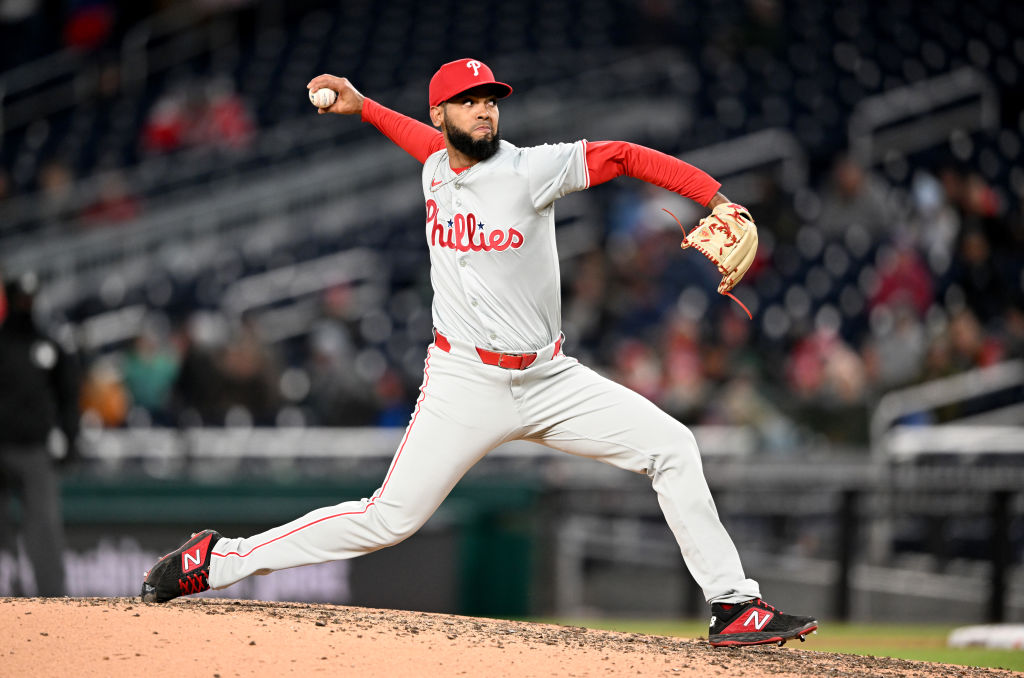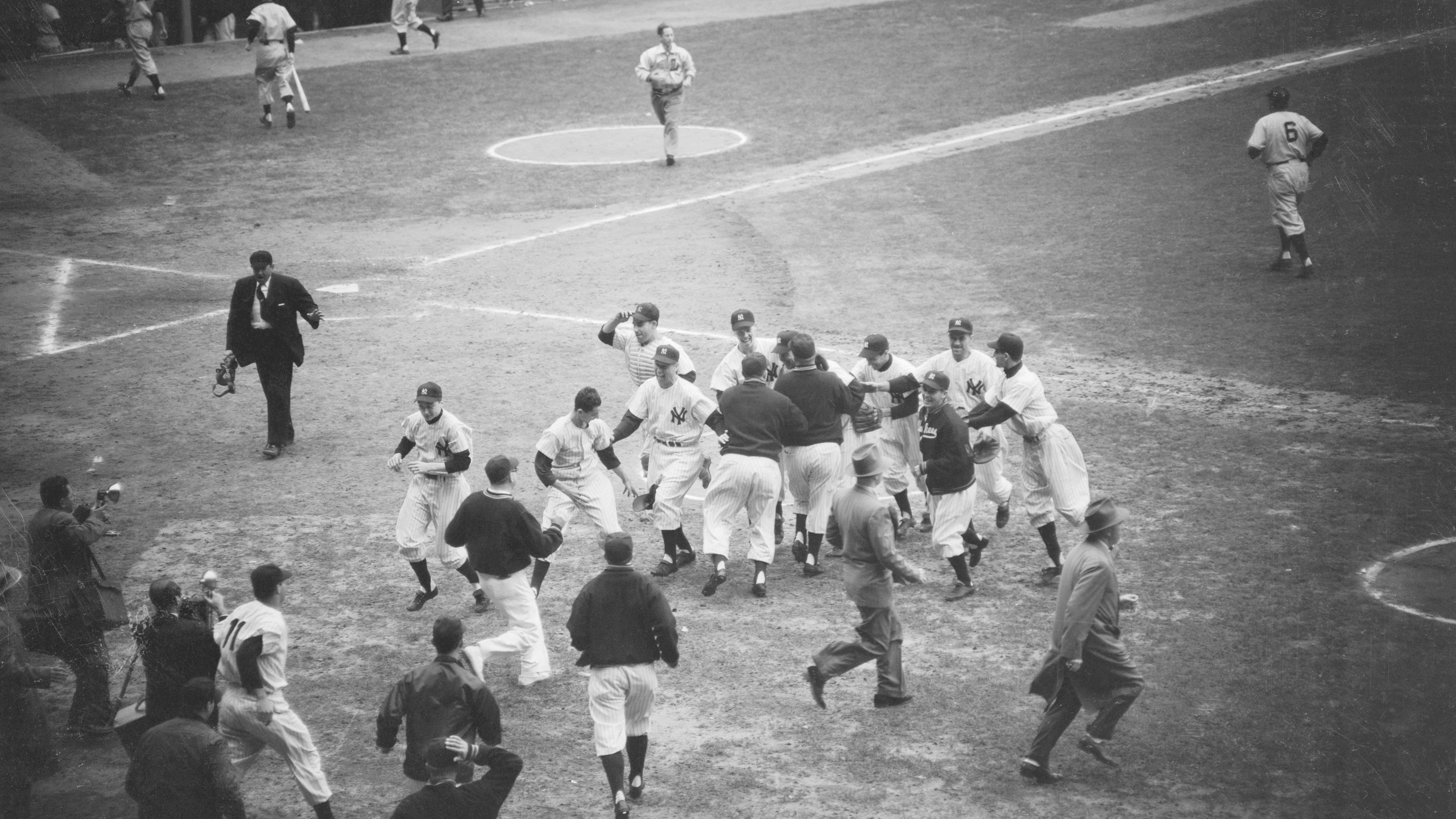The box is full and your friendly neighborhood mailman is back to answer all those burning Phillies curiosities of yours.
Hit me:
Vince Velasquez is a unique pitcher. He's in the top-five in baseball the last two seasons in strikeouts per nine innings among starting pitchers, but he's also toward the bottom in pitches per inning and innings per start.
With Velasquez, his K/9 doesn't really matter -- it's more like a K/5, because he rarely goes too much deeper into the game.
Velasquez is 26 starts into his Phillies career and has lasted past the sixth inning only three times. When he has a poor start, the Phils have little chance of a win because they're playing from behind early and forced to go to the bullpen. When he has a good outing, the Phillies still often require several scoreless innings from the 'pen to lock it down.
Velasquez is realistic about his struggles. He takes little solace in the high strikeout totals because they're less important than quick exits. He assessed his two starts this season as "terrible" and said he's not doing his team any favors.
MLB
If the Phillies wanted to convert him to the bullpen there is no doubt in my mind he'd be a very successful setup man or closer. He has the stuff and the mentality to be a closer. However, putting men on base is even more costly for a reliever and those lapses in control Velasquez has would be even more impactful in relief.
Still, it is the Phillies' goal to give him at least one more full season to gauge how much success he can have in a rotation. The talent and upside are there and they're not going anywhere.
"There's no other alternative," manager Pete Mackanin said Wednesday night when asked if he's content to wait it out with Velasquez. "Hopefully during the course of this season, he's going to show improvement. I have a lot of confidence in him making progress during the course of the year."
Matt Klentak didn't trade Ken Giles to Houston for a package led by Velasquez simply to replace Giles in the ninth inning with Velasquez a year later. But this organization will also be realistic about Velasquez' chances to contribute.
The true deciding factor will be the progress made by the Phillies' young pitching prospects. The five guys at Triple-A -- Zach Eflin, Nick Pivetta, Jake Thompson, Ben Lively and Mark Appel -- will also get chances in the big leagues sooner rather than later. If they fail, there's no urgency or reason to move Velasquez. If several of them show their stuff can play at the big-league level, though, it will be an interesting conversation for the organization this winter.
But don't expect any change to be made with Velasquez's role in 2017.
J.P. Crawford is off to a rough start at Triple-A Lehigh Valley, going 3 for 28 (.107) with one walk and 10 strikeouts in his first seven games.
It's a continuation of Crawford's struggles at the minors' highest level last season. All told, Crawford has been a .234/.315/.308 hitter in 414 plate appearances at Triple-A.
At some point, the performance for Crawford has to match the hype in order for the Phillies to feel confident he can produce every day in the majors. It sounds crazy because Crawford is their top prospect, but at this point, he is not ready to step in and contribute more than Freddy Galvis. Galvis is an elite defensive shortstop and continues to hit for power. Obviously, Galvis' on-base percentage last season was ugly, but if he feels the pressure placed on him by Crawford and improves in that regard, who knows when Crawford gets the job.
The bottom line is Crawford is going to have to hit his way up to the bigs. He won't be handed the job unless Galvis goes down with a long-term injury. Phillies director of player development Joe Jordan said before the season that Crawford developed some bad habits at Double-A Reading last season that he carried with him to Triple A. If last season was about Crawford improving his defense, this season is about him showing his offensive ability consists of more than just plate discipline.
Joseph played well enough last season to earn the everyday job heading into this season, but it's not as if it's his job for good. He's being pushed by 1B Rhys Hoskins, who is off to a strong start at Triple-A after hitting 38 home runs with a high on-base percentage last season at Double A. Through eight games with the IronPigs, Hoskins has gone 9 for 26 (.346) with three doubles, a homer and four walks.
Before the season, Jordan referred to Hoskins as the "smartest hitter" at Lehigh Valley, which is high praise considering Crawford, Roman Quinn, Nick Williams, Jorge Alfaro and Dylan Cozens are also there.
If Hoskins keeps hitting and Joseph is at .220 with a .290 on-base percentage in June or July, you could see the Phils add Hoskins to the 40-man roster, designate someone for assignment and call him up. In that scenario, why not see what he has? Hoskins is going to be 25 years old before the end of next spring training, so it's not as if he needs several more years of development.
This is an interesting question. As of Thursday night, the Phillies had allowed nine home runs already this season with two strikes and no other team had allowed more than six. The Phillies' team ERA with two strikes is 4.81; the MLB average is around 2.80.
Missing so badly with two strikes usually comes down to a lack of concentration. It can be execution, too, but oftentimes if the count is 0-2 or 1-2, the pitcher shouldn't be anywhere near the plate. That's when you bury a breaking ball or pump an enticing fastball high and just out of the strike zone.
Take a look at some of these two-strike pitches, especially to Yoenis Cespedes. Look where Cameron Rupp sets up and where the pitch ends up. Shoutout to MLB.com's Ben Harris for the screen grabs:
He's right. You can't pin that on Rupp. The pitchers simply need to hit their spots.


